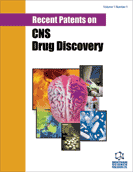Abstract
Ischemic brain damage remains a major cause of disability at all ages. This review examines the efficacy, mode of action and mechanisms of insulin-like growth factor (IGF)-1 and its derivatives in animal models of acute brain injury and neurodegenerative conditions, their potential in pharmaceutical developments.
IGF-1 reduces cell loss and improves long-term neurological function in animal models. IGF-1 needs to be given within a few hours of the insult. However, the therapeutic window can be extended by mild hypothermia, likely by delaying apoptosis. Nevertheless, the poor central uptake of IGF-1 and its mitogenic potential limit clinical translation. Thus, recent studies have examined related compounds. For example, intravenous infusion of the N-terminal tripeptide of IGF-1 (glycine- proline-glutamate, GPE) can alleviate brain injury and improve long-term function in rats, with a broad effective dose range and a 3-7 hour therapeutic window, but has a short half-life. G-2meth-PE(G-2mPE), a GPE analogue with a longer half-life, is also neuroprotective. GPE/G-2mPE do not interact with IGF receptors and may act by modulating postinjury inflammation, astrogliosis and vascular remodeling.
Cyclo-glycyl-proline (cGP), an endogenous diketopiperazine possibly derived from GPE is also neuroprotective. An analogue, cyclo-L-glycyl-L-2-allylproline (NNZ-2591) improves long-term somatosensory-motor function and histology after ischemic injury. Treatment with NNZ-2591 after 6-hypdroxydopamine injection in adult rats improves neurogenesis and long-term motor function. Further, oral administration of NNZ-2591 also prevents scopolamine-induced acute memory impairment. These beneficial effects may mediated by improved neuroplasticity. This review is an updated version of a previous publication in Recent Pat CNS Drug Discov.
Keywords: Clinical applications, diketopiperazine, GPE, IGF-1, ischemic brain injury, pharmaceuticals, Parkinson disease and memory impairment.
 39
39





















